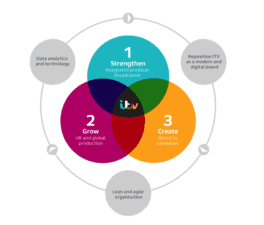If your goal is to build a passive income, the FTSE 100 is a good place to start. Right now, around 30% of the stocks in the index offer rolling dividend yields of 5% and up.
That said, not every FTSE high yielder is likely to be a good investment. Often, a high yield is a sign that the company is in trouble, so you have to be selective. With that in mind, here are three FTSE 100 dividend stocks with yields over 5% I’d be happy to buy today.
Lloyds Bank
After a strong run in the final quarter of 2019, Lloyds (LSE: LLOY) shares have had a poor start to the year in 2020, falling from 63p to 58p. The stock has been hit by a number of factors including weak UK economic data, proposed savings account regulations, and general market weakness.
Personally, I believe this share price weakness has created an opportunity for dividend investors. With Lloyds expected to pay out a dividend of 3.36p per share for FY2019 the prospective yield has been pushed up to an impressive 5.8%. Dividend coverage (a measure of dividend safety) is expected to be healthy, at 2.2 times.
Of course, there are risks to the investment case here. Lloyds is highly exposed to the UK economy and with Brexit just around the corner, there’s uncertainty as to how the economy will perform. Overall though, I see appeal in Lloyds shares from an income investing point of view at present.
ITV
Another UK-focused stock that has pulled back recently and now offers a higher yield is ITV (LSE: ITV). Its share price has fallen from 151p to 140p year to date, and this means its prospective yield is now higher, at 5.7%. Earnings of 13.3p are expected for the year just passed, which gives a dividend coverage ratio of a solid 1.66.
ITV has faced challenges in recent years as Netflix has disrupted the industry and the advertising market has been weak. As a result, the group has evolved and it is now focused on building a digitally-led media and entertainment company that is a more diversified, structurally-sound business. I think this is a sound strategy.

Source: ITV
It’s worth noting that there are execution risks here. For example, there’s no guarantee that ITV’s new streaming service, Britbox, will be successful. Overall, however, I think the risk/reward proposition is favourable.
Royal Dutch Shell
Finally, I think now could be a good time to take a closer look at shares in oil major Shell (LSE: RDSB). It has fallen out of favour with investors recently and this has pushed its prospective yield up to a massive 6.7%. Dividend coverage does look a little thin here, but Shell has not cut its dividend payout since World War II, so I would not be too concerned about a dividend cut in the near term.
One reason Shell shares are out of favour right now, aside from the fact that trade tensions between the US and China have hit the demand for oil, is that investors are becoming increasingly focused on sustainable companies. Fossil fuel divestment has become a bit of a theme. However, to Shell’s credit, it is actively taking steps to become more sustainable and ploughing billions into opportunities in the renewables space. So, I wouldn’t write off the FTSE 100 champion just yet.